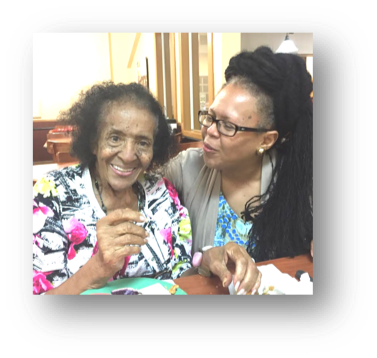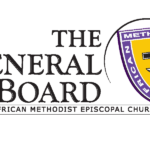Finding the Blessings of Dementia
By Dr. Yvette M. Giles, 11th Episcopal District
As Christians, we know the Lord works in mysterious ways. He always works for the good of those who serve Him. As Christians, we are also compelled to find God’s blessings in the most challenging circumstances.
My beloved mother, Mrs. Ruth T. Giles,one of Mount Hermon AME Church’s pioneers and most-dedicated Christian servants, was diagnosed with mild dementia in 2009, shortly after a lengthy surgery for Stage IV cancer. Her physicians view her recovery as no less than a miracle. In fact, after she successfully completed 17 chemotherapy treatments and entered into remission, her oncologist said, “I’ve never seen anything like it; somebody must be praying.” We know this to be true.
The prayers of family, friends, colleagues, neighbors, former students, and fellow members of our beloved Mount Hermon were heard and answered. Seven years have passed since her last chemotherapy treatment. Her beautiful smile still lights up the room; however, dementia remains.
Like cancer, dementia can be a devastating medical diagnosis. To this date, there is still no known cure. However, we count it as God’s blessing that Sister Giles was diagnosed late in life so the disease is progressing much more slowly.
Black communities are disproportionately affected by this illness. Sadly, dementia and those afflicted with it remain misunderstood.
Over time, I’ve noticed some close friends and even family ceasing to communicate with my mother due to her dementia, unaware of the pain they have caused. In an effort to educate our members who may not have personal experiences in this area, I am addressing concerns raised by some individuals. Hopefully, others who are stricken with this disease may benefit from our experience. Your ongoingloving care and concern are critical to the mental and physical health of friends and loved ones with dementia.
The problem is needing to answer the same questions over and over. The blessing is gently changing the subject or asking questions, enabling the person with dementia to continue to engage and feel friends and loved ones still care.
The problem is finding it difficult to witness the decline of someone who was once vibrant and energetic. The blessing is appreciating that the person with dementia is still alive and likely realizes he or she has changed. Loved ones can lift spirits by reminding him or her about accomplishments and expressing sincere gratitude if the person may have helped them in some way.
The problem is concluding the individual will not remember a call or visit. The blessing is when the person with dementia becomes depressed thinking no one has called or visited, the caregiver will remind him or her of your call or visit. Pictures during visits are helpful here.
The problem is concluding the person with dementia will not remember that you did not call or visit. It has been my experience that he or she often will remember that friends and loved ones have not called or visited and, sadly, conclude they simply no longer care. The blessing is for you to call and visit. You can show you care.
The problem is concluding the person you once knew is gone. The blessing is if the person with dementia is still alive then you can thank God he or she is still here.
In all instances, you can be the blessing because you have the God-given power to provide a healing touch for a person with dementia by uplifting spirits and offering much-needed attention, appreciation, and emotional support. Look for the blessings ahead.
Many individuals with dementia, including my dear mother, have very lucid moments when they think and speak quite clearly and thoughtfully. As her daughter and caregiver, I cherish these moments of clarity and seize every opportunity to converse, listen, and learn from the richness of Sister Giles’s life experiences. The privilege of lovingly caring for her (and my beloved father) is my most treasured blessing.







